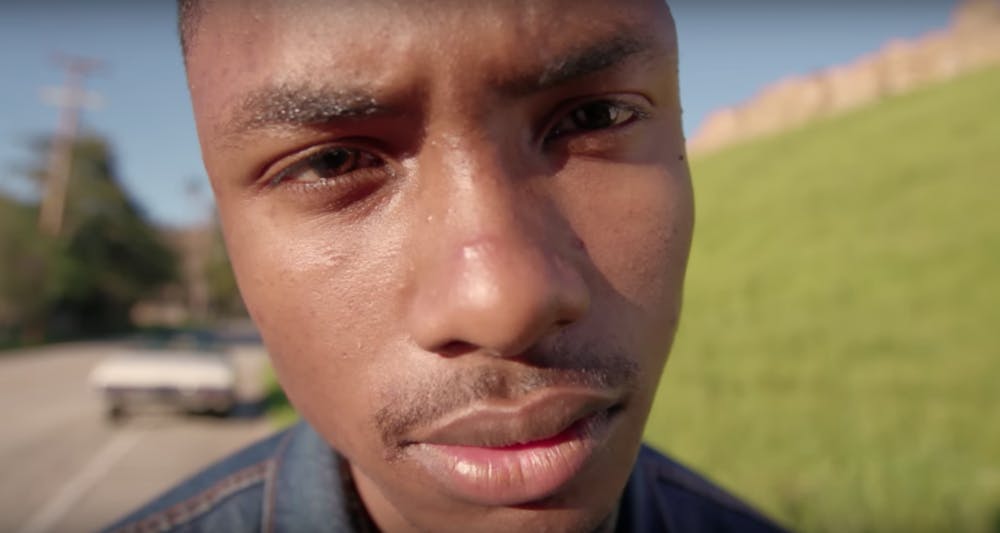In college, there’s consistent excitement when discovering a new artist—you google them, find out where they’re from, hear what other music they’ve made, and a little part of you even hopes to be like them when you’re older. With Steve Lacy, the experience may be a little different. You can still google him, find out where he’s from, and hear other music of his, but you’re likely too old to look up to him. At just 19, he’s already an accomplished guitarist, producer, and singer. Actually, scratch that. It might even be hard to google him, too. When you do, another Steve Lacy, a deceased Soprano Saxophonist, comes up.
It’s not as if this Steve Lacy is just getting started. Two years go, at 17, he became a Grammy–nominated producer for his work with his band, The Internet. In 2015, their album, Ego Death, was nominated for Best Urban Contemporary Album. In February 2017, the Compton–born producer dropped his first solo work, Steve Lacy’s Demo. Now, finally a high school graduate, Lacy’s career is only beginning.
Arguably the craziest thing about Lacy isn’t what he’s done, but how he’s done it. Unable to afford a laptop as a teenager, he took an atypical route to beat–production. With his iPod, he began making beats through a variety of apps. Using a device called an iRig, he combined sounds from his bass with other beats on his iPod. Even after joining The Internet and having access to greater studio equipment, he continued to use the iRig and produce beats on his iPhone. He describes this approach to his music and his making the most of what he had as the "Bare Maximum." Lacy further discusses his abnormal production method on his TEDx Talk below.
Once you become aware of Lacy, you can spot his fingerprints all over contemporary hip–hop. After being introduced to Kendrick Lamar, Lacy showed him some of his iPhone beats. After putting his number into Kendrick’s phone, those beats became “PRIDE.”, the seventh song on Kendrick’s Grammy-winning album. He’s also credited with production for J Cole’s “Foldin Clothes,” which is on 4 Your Eyez Only. He contributes outside of beat–production as well. On Tyler, the Creator’s Flower Boy, Lacy adds vocals to "911/Mr. Lonely" beside Frank Ocean and Tyler.
In his own work, Lacy proves to have an exciting versatility that gives each song its own special flavor. “Looks,” the first song of Lacy’s EP, starts with a funky beat and consists of him switching back and forth from a low to high pitch. On “Ryd,” he successfully tells a story about driving around with a girl he’s into, and on “Dark Red,” he gives us an almost ominous tale of his anxieties relating to the potential end to a relationship. The bridge on “Dark Red” takes us directly into Steve’s mind and the echoes are meant to depict his attempt to reassure himself.
We see some of his fears in his two–song music video for “Ryd” and “Dark Red.” In the video, Lacy’s kidnapped from a coin laundry and finds himself trapped in the trunk of some girl’s car. She eventually pulls him out of the trunk and shoves him against the gravel as Lacy mouths the bridge. Lacy’s being pushed around while expressionlessly singing along. The blue sky as a backdrop adds a nice visual component to the songs.
On “Thangs,” Lacy continues to play around with different forms of his voice, and, again, he switches between high and low pitches. Lacy’s ability to use different tones or pitches of voice to convey different perspectives or messages gives his music an added layer of depth.
Only a few years in the making, Lacy’s career has only begun, but he shows an incredible amount of potential as both a producer and vocalist. Whether he’s creating more music with The Internet, on his own, or with a variety of other artists, we look forward to hearing what else he will create.







